

Mexico City
Very bad thoughts
I have always been uncomfortable with the term "cultural critic." What is it supposed to mean? What comes to mind is a person of reasonable intelligence who watches too much television and is addicted to the internet and expects we should listen to his opinions, and even more outrageously, that perhaps he should even be paid to express them. About three years ago, a writer from New York named Mark Dery passed through Mexico City, to give a conference at the Festival de México en el Centro Histórico. We met and, aside from being a very bright and likeable guy, he wrote a sympathetic article based on our interview.
Dery is a "cultural critic" por excelencia -- he has written about media, pop culture and technology for a formidable roundup of august publications, such as The New Yorker, Wired, Spin, the Village Voice and Rolling Stone and a book of his about cyberculture was translated into eight languages. So when he sent me the galleys to his new book, I Must Not Think Bad Thoughts: Drive-By Essays on American Dread, American Dreams, I was nervous about whether or not I would get into it.
I need not have doubted. It's a dazzling performance, with Dery compulsively trawling the garbage-strewn shorelines of the U.S. to examine its dark and rancid center: the homosexual panic behind the Super Bowl and George Bush's cowboy pronouncements; the eros of severed heads and facial come shots on the internet; the dubious value of blogging and Facebook; the supposed intelligence of Lady Gaga and -- I am not making this up -- the significance of Madonna's big toe in a Versace ad. He writes in a breathless and witty style, engagingly full of glib word play.
As someone who left the U.S. years ago, at least in part to escape such manifestations of "culture," Dery's book is a special treat. For example, away from my home country, I have been able to completely ignore the ascendance of Lady Gaga (and only by chance realized that she played Mexico City last year because a young friend told me she had tickets). I have never listened to one of her songs or seen a video, never read an article about her, never even looked at her photo. After reading Dery's essay about her -- highly opinionated and absolutely damning -- I am certain I've made the right choice. In this and many other instances, I am grateful to Mark for doing my dirty work.
Border town
 My work as a mitigation specialist takes me to many places that I probably would never visit otherwise. In the past year or two I made multiple trips to Brownsville, Texas, right across the bridge from Matamoros, Tamaulipas. More than 90 per cent of the city's citizens are of Mexican origin, so Spanglish is pretty much the first language.
My work as a mitigation specialist takes me to many places that I probably would never visit otherwise. In the past year or two I made multiple trips to Brownsville, Texas, right across the bridge from Matamoros, Tamaulipas. More than 90 per cent of the city's citizens are of Mexican origin, so Spanglish is pretty much the first language.

As in many U.S. cities, downtown is sadly deserted. The Hotel El Jardín, whose management was once delighted to see Mexicans cross its portals (those were the days, my friend) is now abandoned.

Likewise the Capitol movie house.

I liked this building downtown, and wondered who was Andrés Pacheco, for whom its bell tolls.

On the inner city freeway I kept passing signs for the Gladys Porter Zoo. I don't know why the name struck me as funny; perhaps it reminded me of a famous finishing school for girls known as Miss Porter's. In any case I finally made it to visit the ancestors. This guy's friends call him Red (or Pinky, behind his back).

Here's Gladys herself.

Unfortunately, Brownsville is among the cities with the lowest levels of literacy in the U.S.
Sergio in English -- por fin
One of the first posts I published on this blog was about my dear friend, the noted author Sergio González Rodríguez, whose books have been translated into various languages -- but not English. Until now.
For its Interventions series, the publisher Semiotexte commissioned an original book by Sergio called Femicide Machine. It is a chilling little work about how in Ciudad Juárez murder, mayhem and lawlessness became the norm, thanks to a government that -- implicitly and explicitly -- either looked the other way or even sanctioned such activity. It is a cold-eyed analysis of the sociopolitical and economic conditions that produce the specific brand of horror that is contemporary Juárez, a city that has distinguished itself as the homicide capital of the world.
His books have been published in Spanish, French, German and Italian. It's about time that one of them became available in English -- even better, in an excellent translation by another amigo, Michael Parker-Stainback.
For friends in New York: On March 31, at 6 pm, Sergio will be speaking at Artists Space at 38 Greene Street, 3rd floor, in SoHo, as part of a symposium called The City Machine and Its Streets: Anomalous Ecologies. On April 2 at 6:30 pm, he'll be at the Center for the Humanities at CUNY, 365 Fifth Avenue. This particular event takes place in the Skylight Room (9100), which sounds like a cocktail lounge -- which, as Sergio's friends know, would be an eminently appropriate venue.
Cupcakerías
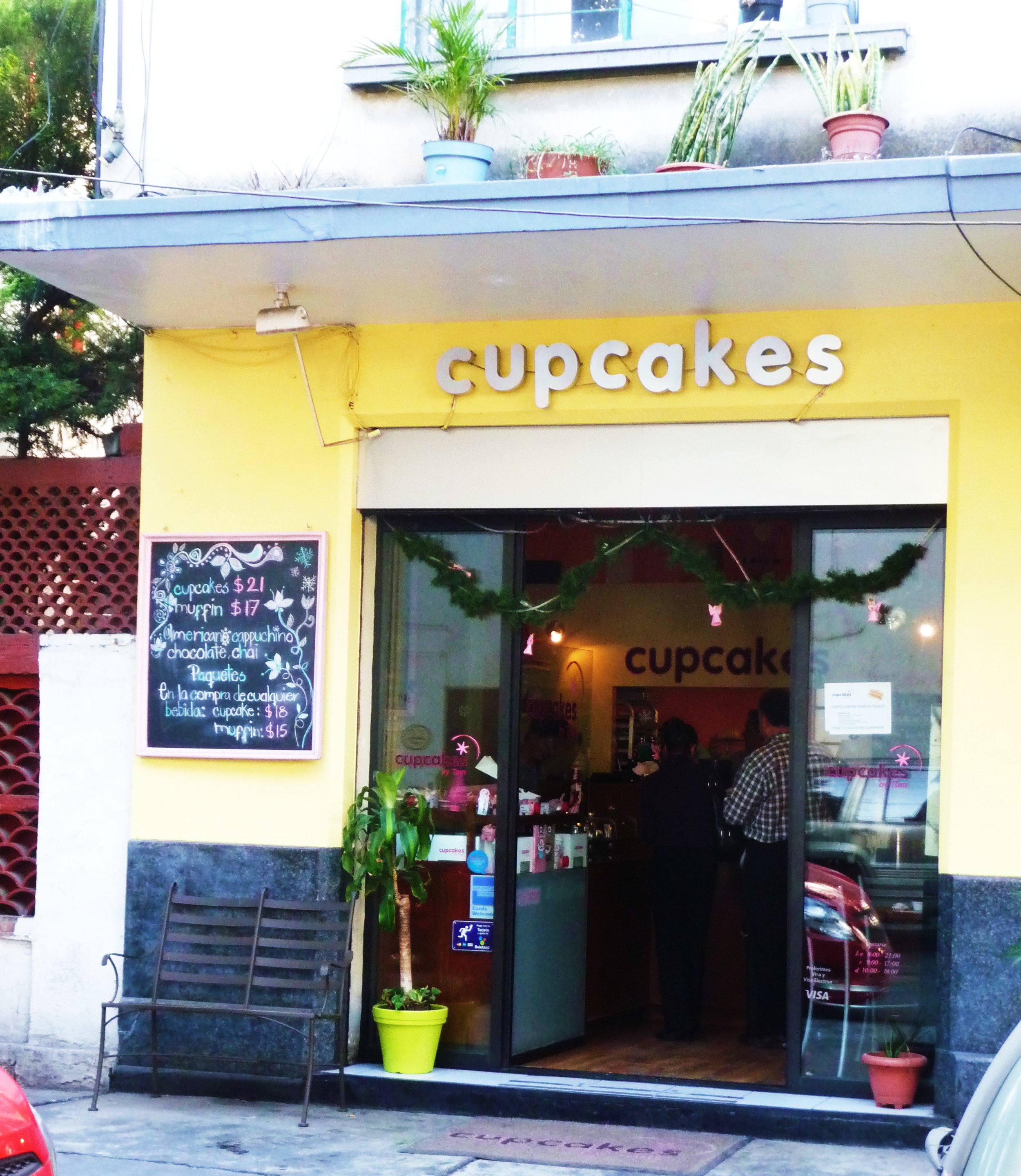 Fifteen or twenty years ago, when bottled water became all the rage in the U.S., comedian George Carlin did a routine about it and asked the audience, "When did we all get so thirsty?" Looking around the streets of fashionable neighborhoods in Mexico City I similarly ask myself, "When did everybody get so desperate for cupcakes?" Pictured above is the first cupcake culprit, in the Colonia Condesa. When it opened, it was advertised as having an owner (or perhaps a baker) called Tom, who I assume was a gringo. Soon spawn appeared.
Fifteen or twenty years ago, when bottled water became all the rage in the U.S., comedian George Carlin did a routine about it and asked the audience, "When did we all get so thirsty?" Looking around the streets of fashionable neighborhoods in Mexico City I similarly ask myself, "When did everybody get so desperate for cupcakes?" Pictured above is the first cupcake culprit, in the Colonia Condesa. When it opened, it was advertised as having an owner (or perhaps a baker) called Tom, who I assume was a gringo. Soon spawn appeared.
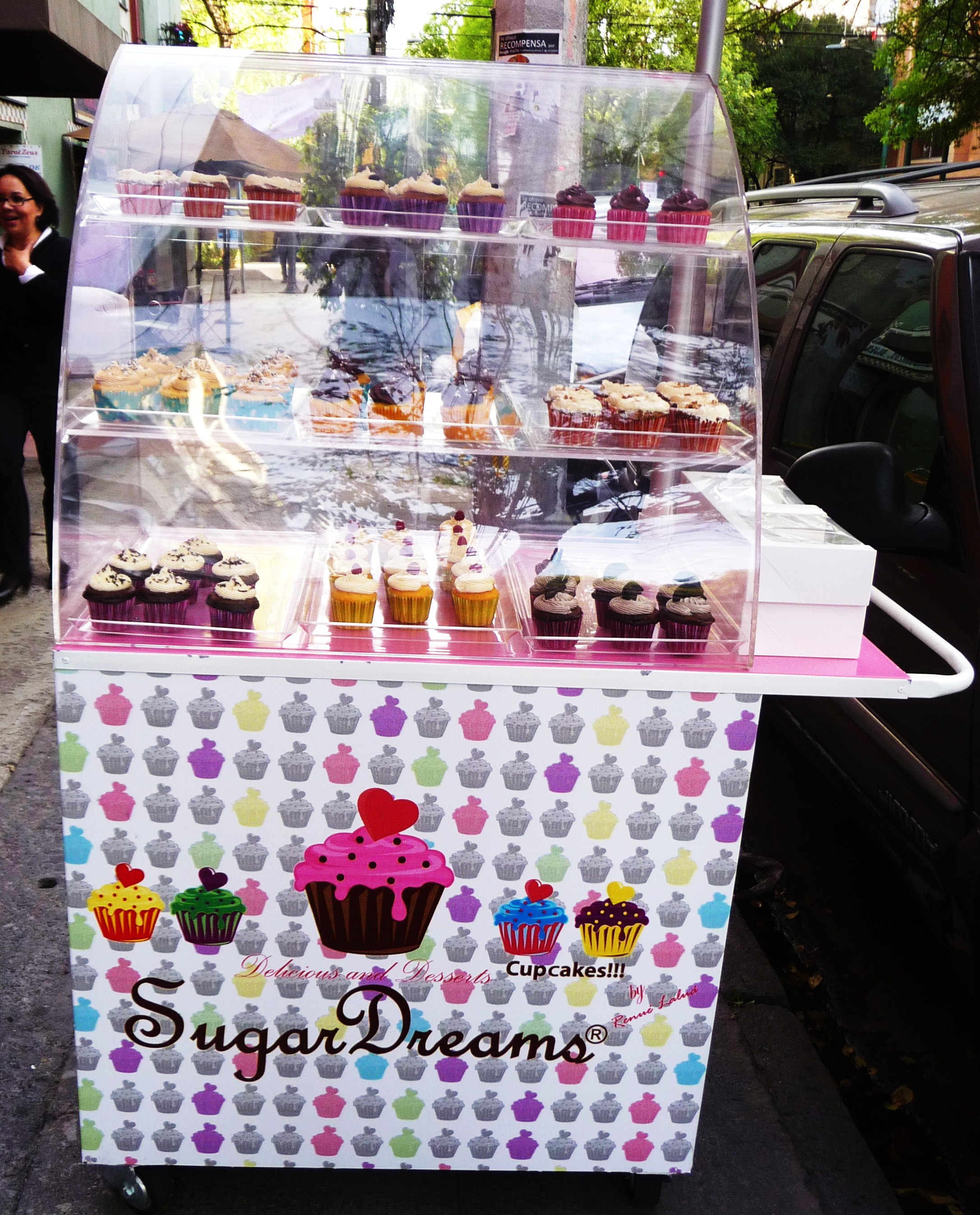
And appeared.
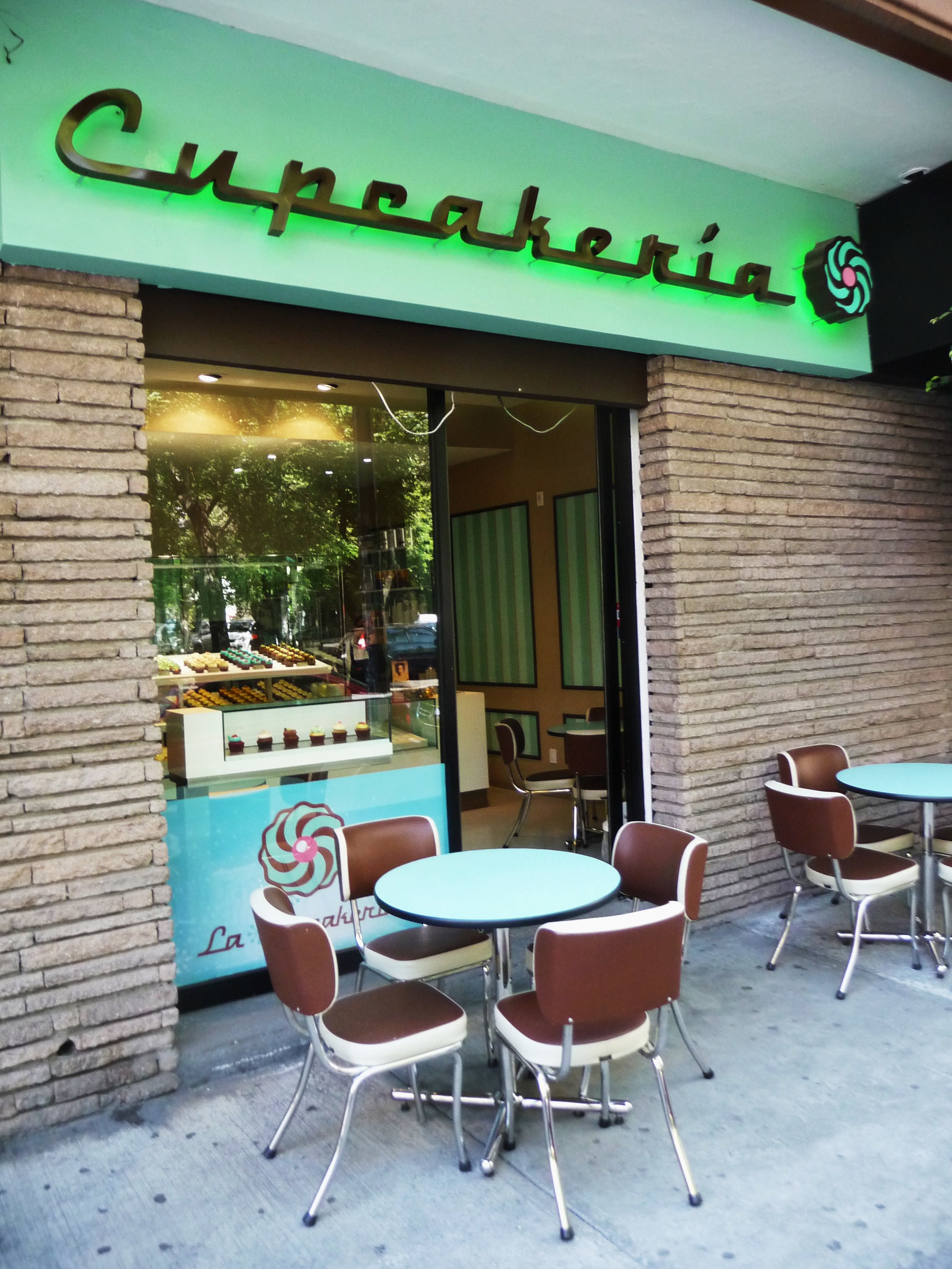
And appeared.
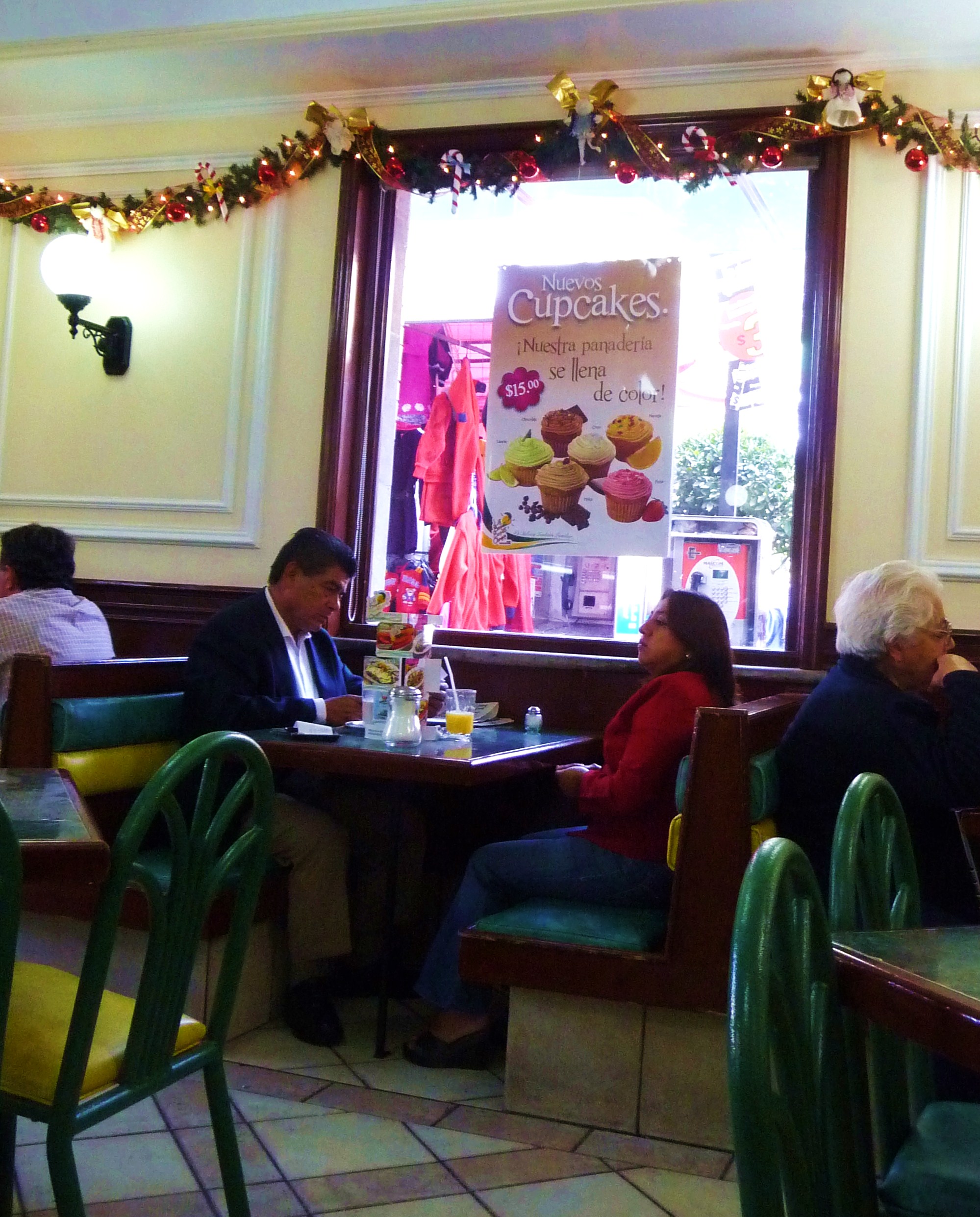
Even a luncheonette chain called Bisquets, whose specialty is traditional Mexican sweet rolls, is getting into the act.
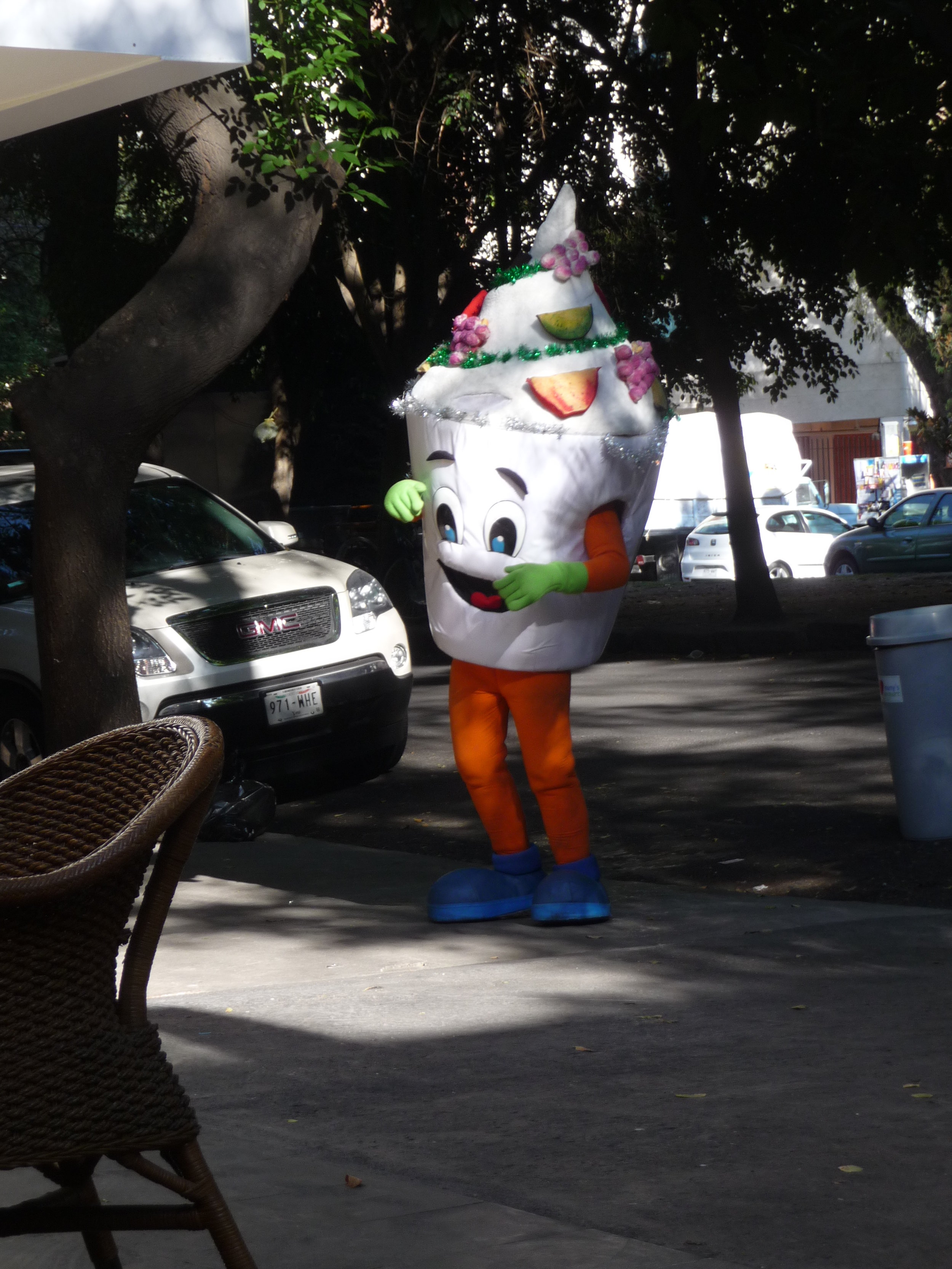
I asked friends about the phenomenon and they told me that we have to thank the TV program Sex and the City for all this. Having lived without a television for much of my life, I had never seen the protagonists of that show frequenting the Magnolia Bakery in New York for their cupcake fixes. Apparently similar "cupcakerías" opened across the U.S., before snaking their way across the southern border.

Commenting on the craze, a woman from the U.S. who lives in Mexico rolled her eyes and said, "Cupcakes are so 2009."



